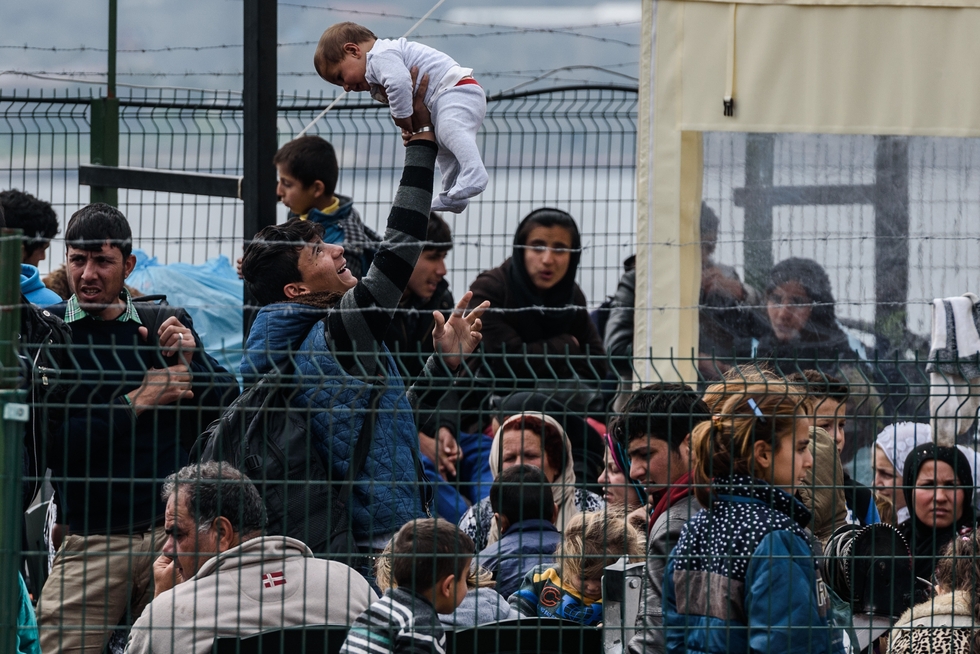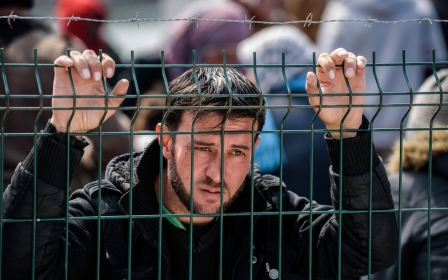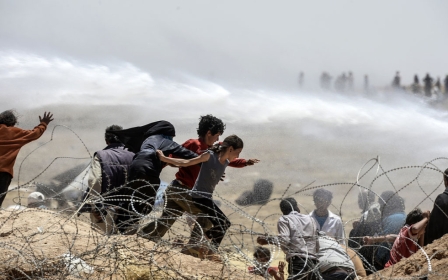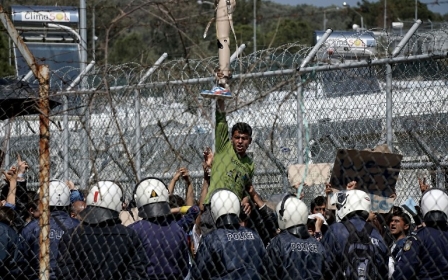Turkey rejects accusation it forcibly returns Syrian refugees

Turkey has vehemently rejected accusations by Amnesty International that it was forcibly returning Syrian refugees to their conflict-torn homeland, as Ankara prepares to take back, under an EU deal, Syrians who travelled illegally to Greece.
"The allegations do not reflect reality in any way," the Turkish foreign ministry said in a statement. "It is sad that this kind of news was shared with the public [by the media] in such an intense way."
Amnesty International accused Turkey on Friday of illegally forcing groups of about one hundred Syrians a day to return home, saying the alleged expulsions showed the "fatal flaws" in the migrant deal agreed with the EU.
Greece is due on Monday to start sending back to Turkey all migrants, including Syrians, who crossed the Aegean Sea illegally.
According to Greek staff handling the refugee crisis, there were more than 52,500 refugees and other migrants stranded in Greece as of Saturday.
Amnesty said its revelations showed Turkey was not a "safe country" for Syrian refugees to return to.
The Turkish foreign ministry insisted there was "no change" in the open-door policy that for the last year has allowed any Syrian fleeing the civil war there to seek refuge in the country.
"Turkey is committed to continue to provide protection to Syrians fleeing violence and instability under its international obligations," it added.
"Planning is in progress," Yiorgos Kyritsis, spokesman for Greece's refugee coordination unit, told AFP.
ANA, the Athens News Agency, said the refugees and migrants would be sent back from the island of Lesbos to the Turkish port of Dikili, adding that EU border agency Frontex had chartered two Turkish leisure vessels for the operation.
Turkish towns not ready
The mayor of Dikili, meanwhile, has said they are not ready to accommodate the hundreds of refugees expected to arrive on Monday.
"I myself as mayor have received no information at all from the responsible parties in Ankara regarding the migrants," Mustafa Tosun told German news agency DPA on Sunday.
Tosun added he did not know if, or how many, migrants are due to arrive in Dikili on Monday, nor where they would be accommodated.
There will be one Frontex agent on board for every single migrant, ANA said. Kyritsis declined to comment on the report.
On the other side of the Aegean Sea, work is under way on a centre to host those sent back in the Turkish tourist resort of Cesme, town mayor Muhittin Dalgic said.
Another is being created in Dikili, opposite Lesbos, one of several Greek islands that have seen a huge influx of people fleeing conflict and poverty in the Middle East and elsewhere.
Turkish media reports say the Turkish Red Crescent is also preparing to open a refugee camp with capacity for 5,000 people further inland in Manisa.
A total of 514 refugees and migrants arrived on the Greek Aegean islands from Turkey in the 24 hours to Sunday morning, officials said.
On Saturday, the figure was 566 people, on Friday 339 and on Thursday 377, the Greek department dealing with the refugee crisis said.
New MEE newsletter: Jerusalem Dispatch
Sign up to get the latest insights and analysis on Israel-Palestine, alongside Turkey Unpacked and other MEE newsletters
Middle East Eye delivers independent and unrivalled coverage and analysis of the Middle East, North Africa and beyond. To learn more about republishing this content and the associated fees, please fill out this form. More about MEE can be found here.




